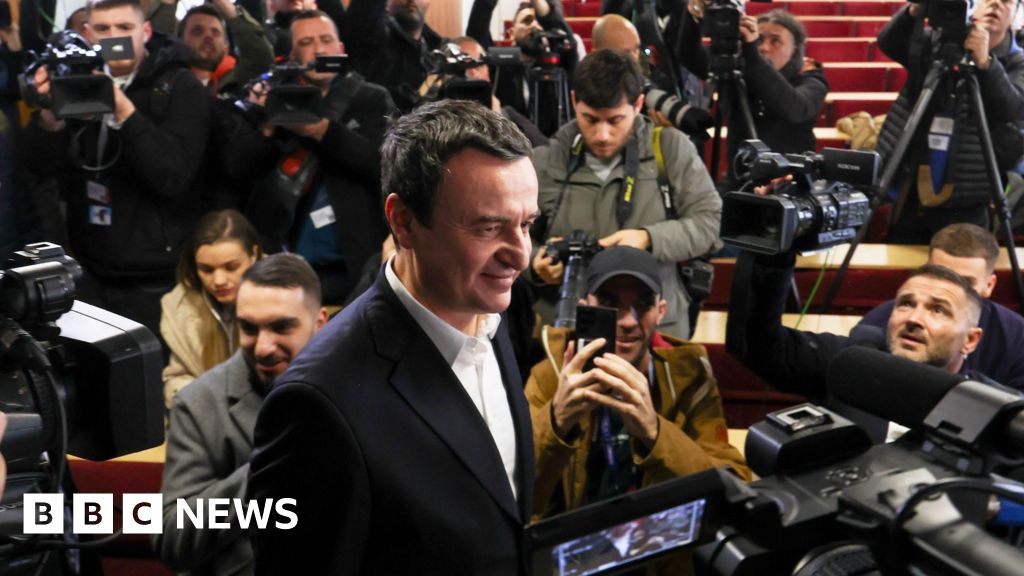Kosovo’s Prime Minister Albin Kurti has claimed victory for his party in Sunday’s parliamentary elections, although exit polls suggest he is short of a majority.
Kurti’s ruling Vetevendosje party won around 40% of the votes, compared to 50% in 2021, exit poll projections say.
He said he was confident he will be able to form a government, adding: “We are the [winners] and this is confirmation of a good, prosperous and democratic government.”
But, official results are unclear due to the failure of the Central Election Commission’s counting system.
President Vjosa Osmani has called on the commission to “protect the integrity of the electoral process, ensuring that every vote is counted correctly”.
The editor of the media group Koha said the president should sack the commission’s chair.
Besnik Krasniqi said the failure of the system for preliminary results was “intolerable”.
Koha news says centre-left party Vetevendosje will get 42% of the vote – securing 47 seats in the 120-member parliament.
The Democratic Party of Kosovo (PDK) is polling 21%, the Democratic League of Kosovo (LDK) is on 20%, and the Alliance for the Future of Kosovo (AAK) has 6%. The electoral commission is currently not giving any count updates, citing “technical problems”.
Kurti came to power in 2021 when a coalition run by his party secured a small majority with over 50% of the vote.
Before any results were officially declared Kurti said: “Our coalition will form our third government.
“It will continue the work. The people won, Vetëvendosje won.”
Kurti’s popularity has been boosted by efforts to extend government control over the ethnic-Serb majority north.
But that has antagonised Kosovo’s main backers – the EU and the US. Opposition parties advocate a more conciliatory approach, and have criticised the government’s handling of the economy.
The centre-right LDK has campaigned on joining Nato, and restoring relations with the US. The PDK, also centre-right, was founded by former guerrilla fighters of the Kosovo Liberation Army.
“We are proud of the campaign and the election day. We await the results, but already we have reason to be optimistic,” said Vlora Citaku, deputy PDK leader.
Meanwhile, AAK leader Ramush Haradinaj, a former prime minister of the country, said he was “looking forward to co-operating on the creation of an opposition government” to prevent Kurti’s return to power.
Under Kosovo’s constitution, 10 MPs must come from the Serb minority, and they will not co-operate with Kurti’s party.
The remaining 10 seats are reserved for other minority ethnic groups, which have previously worked with Vetevendosje, which translates as “self-determination”.
Kurti has previously said he would not co-operate with any of the opposition parties.
Kosovo unilaterally declared independence from Serbia in February 2008, after years of strained relations between its Serb and mainly ethnic Albanian inhabitants.
It has been recognised by the US and most major EU countries, but Serbia, backed by its powerful ally Russia, refuses to do so, as do most ethnic Serbs inside Kosovo.
